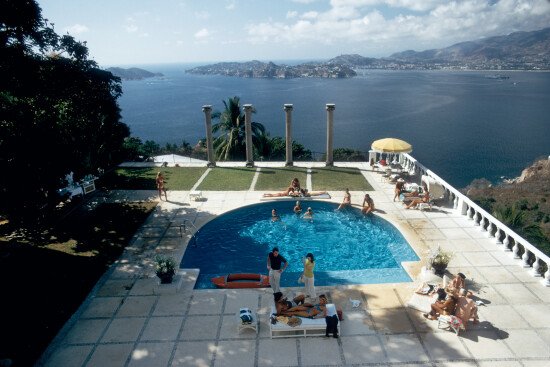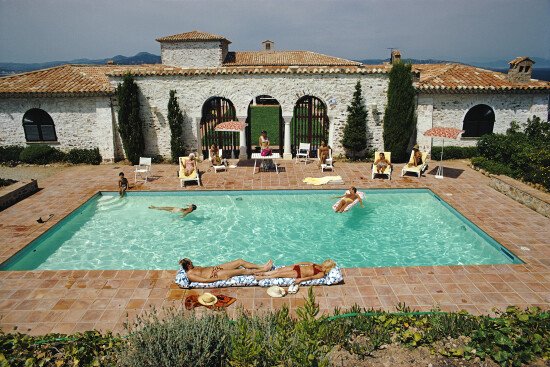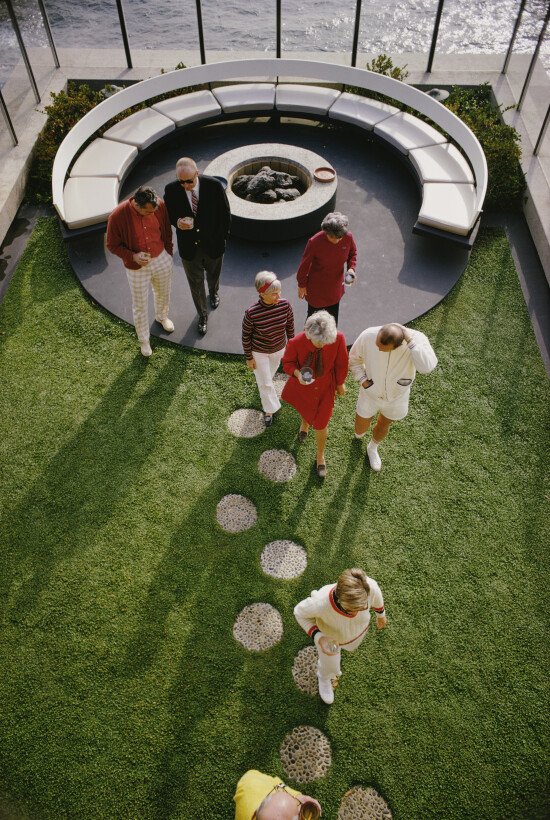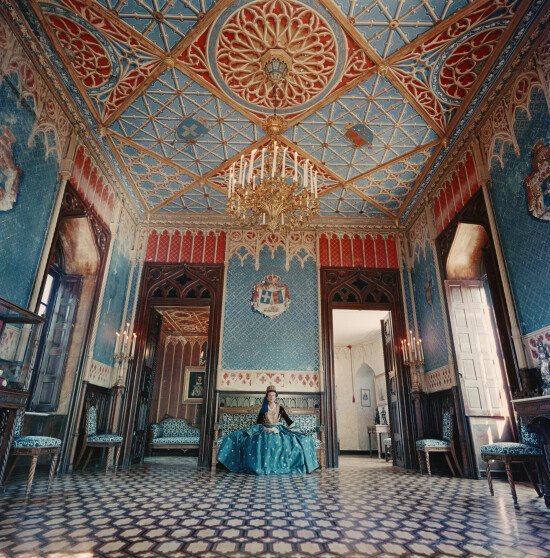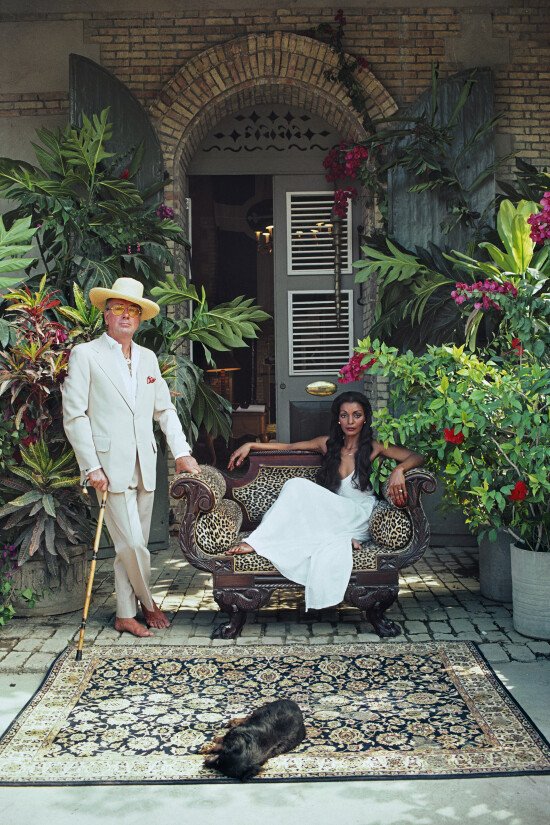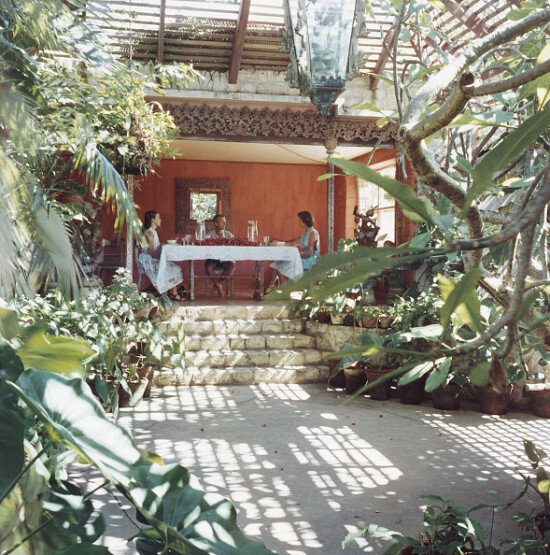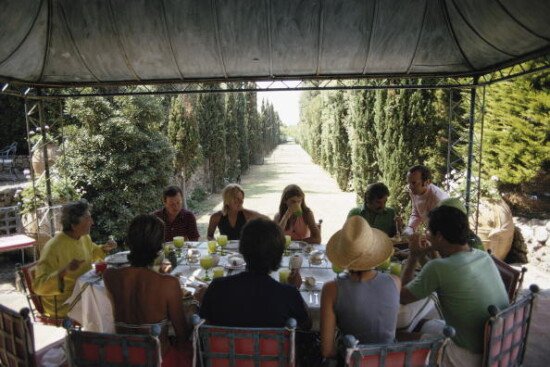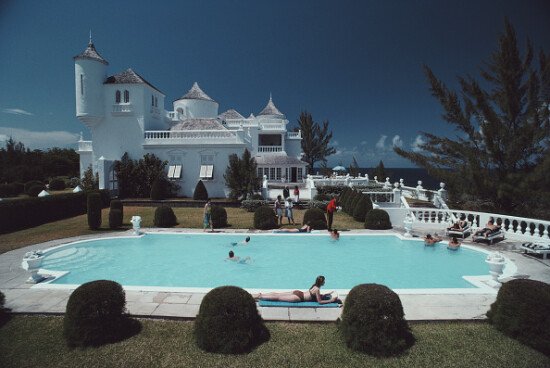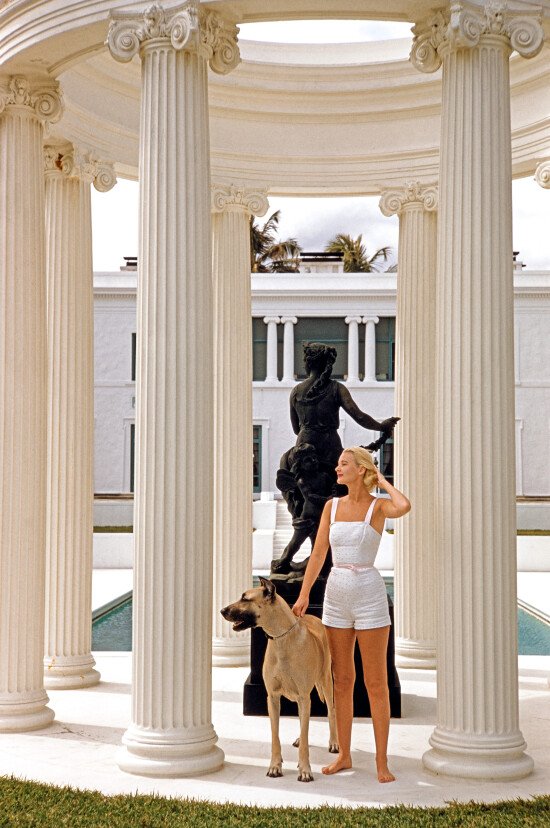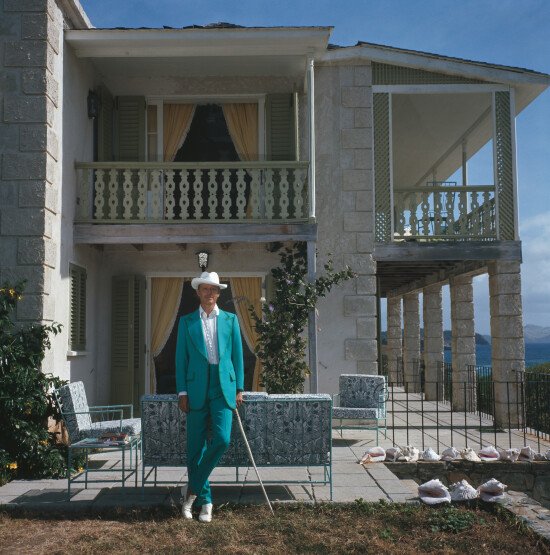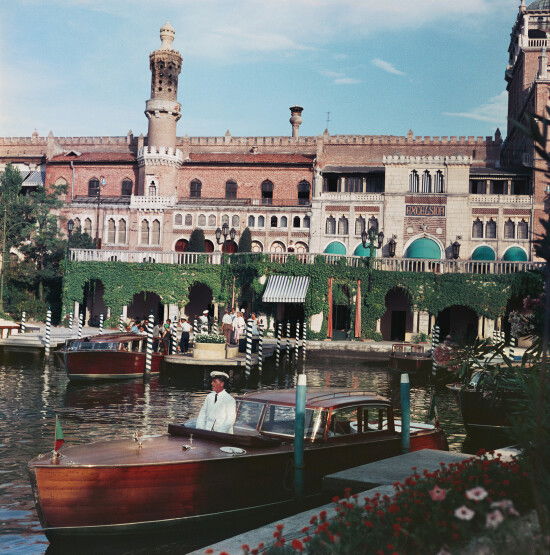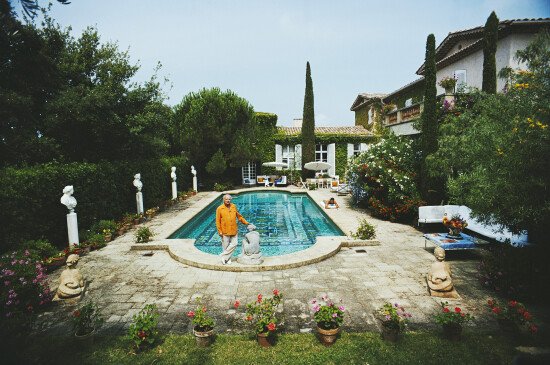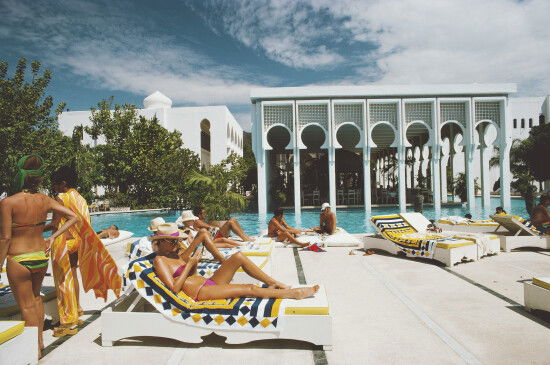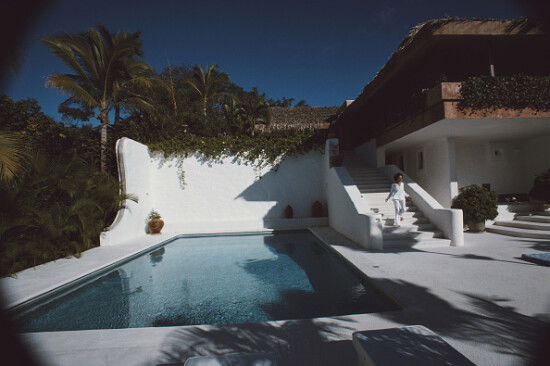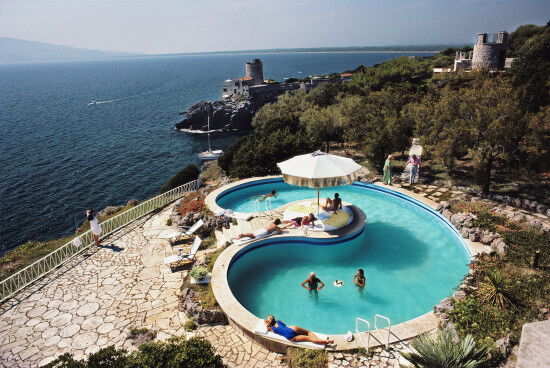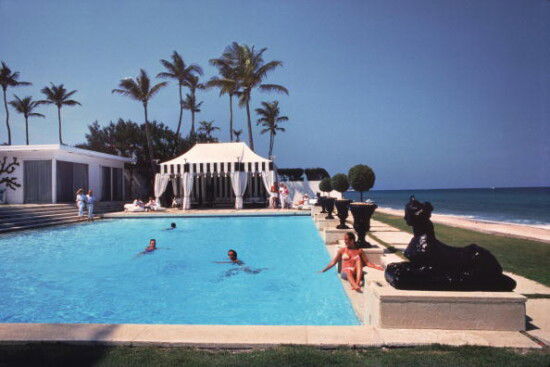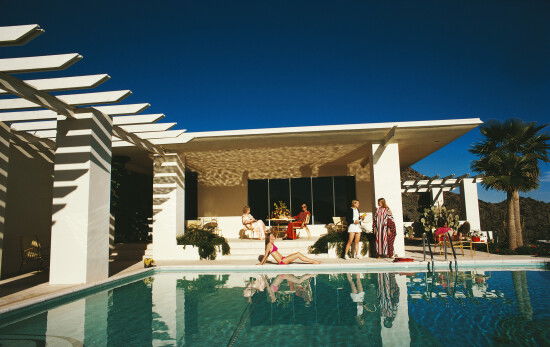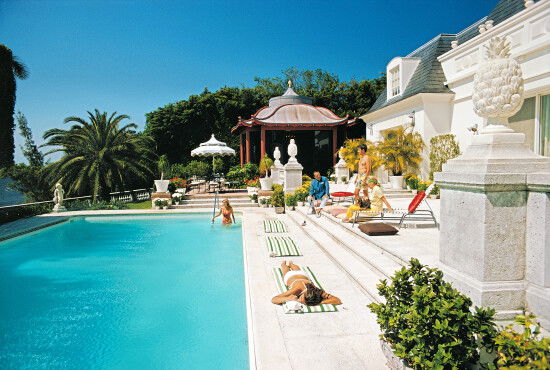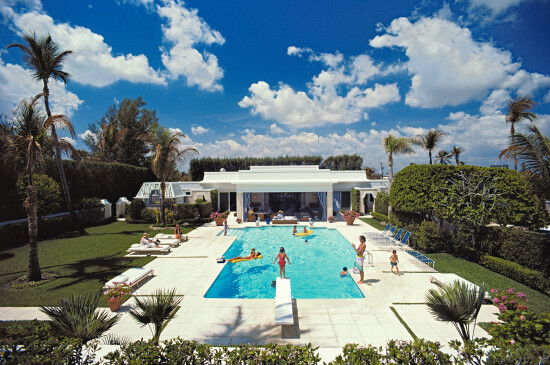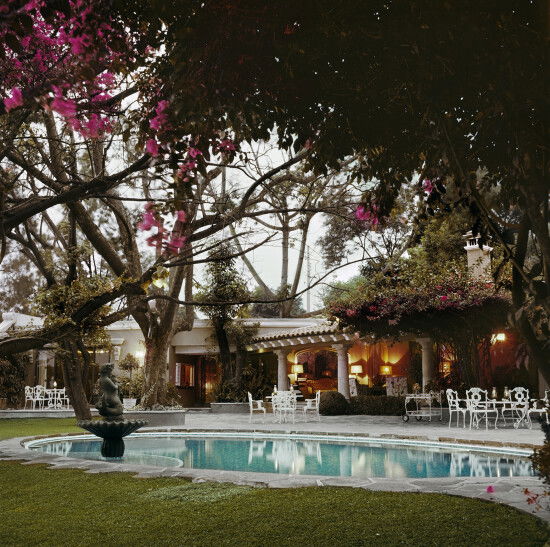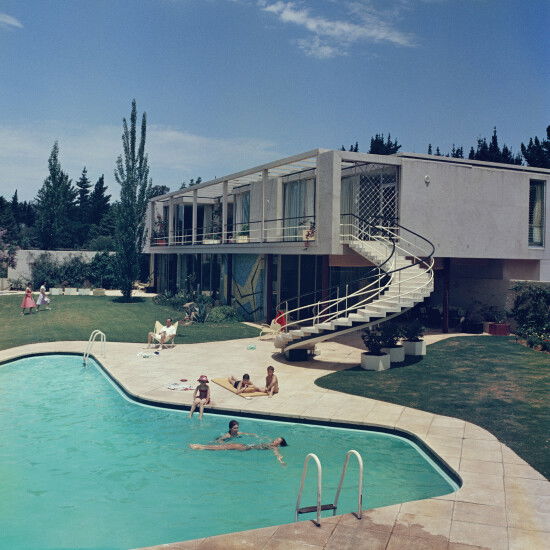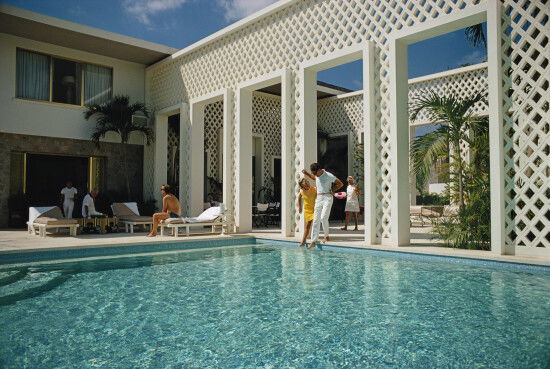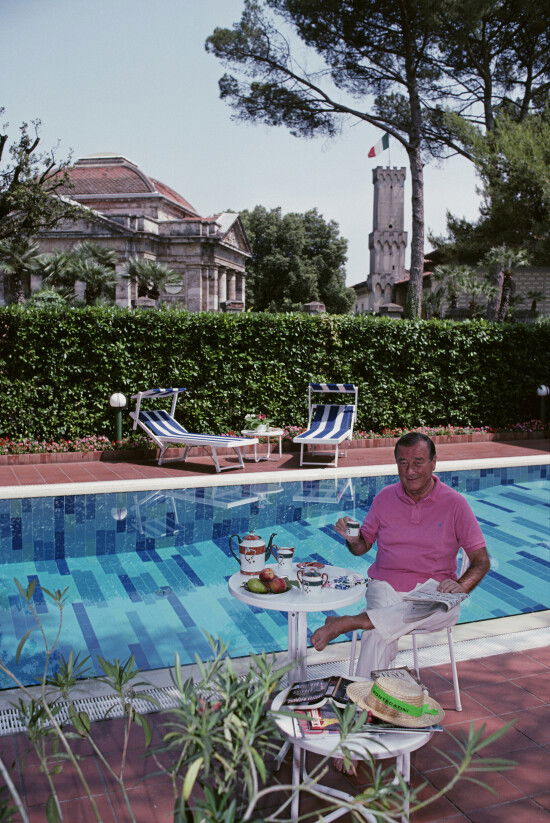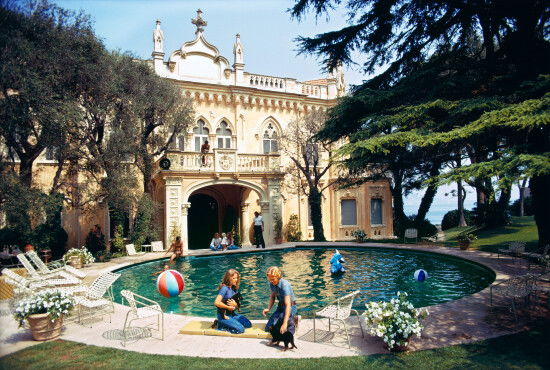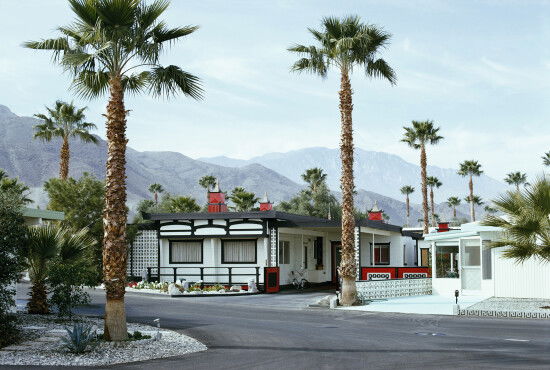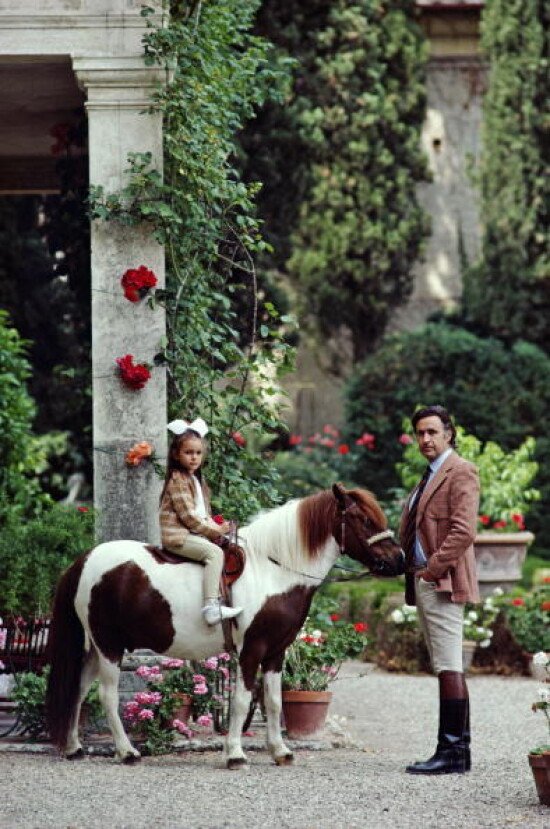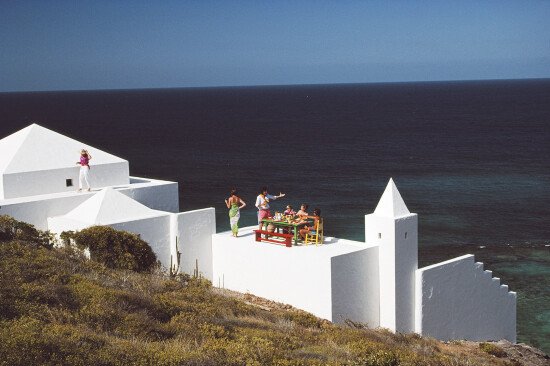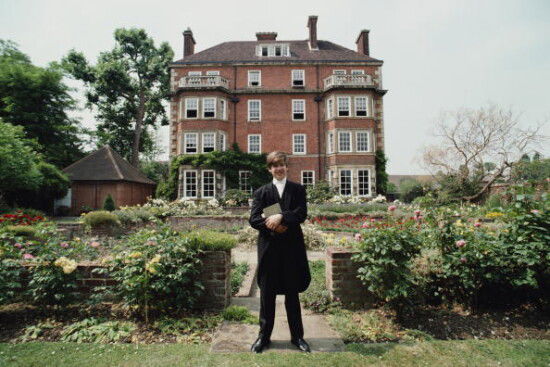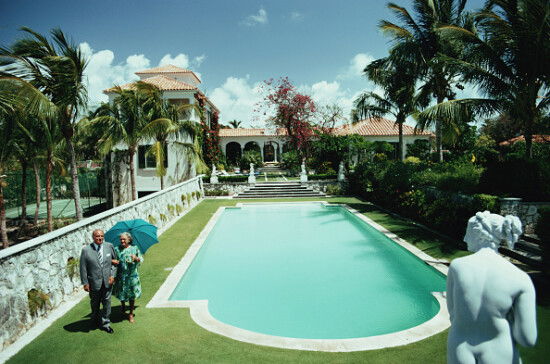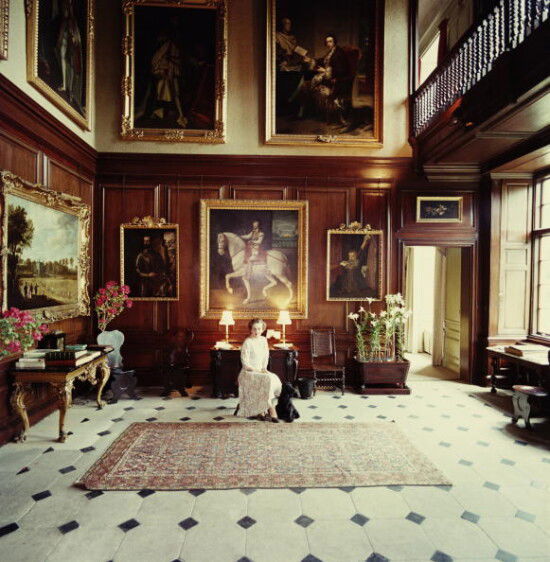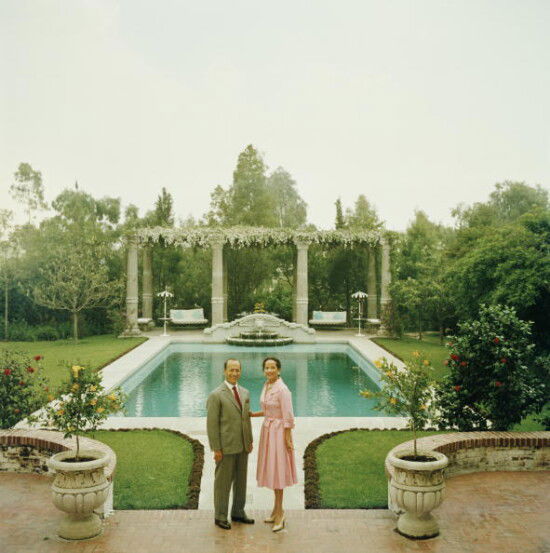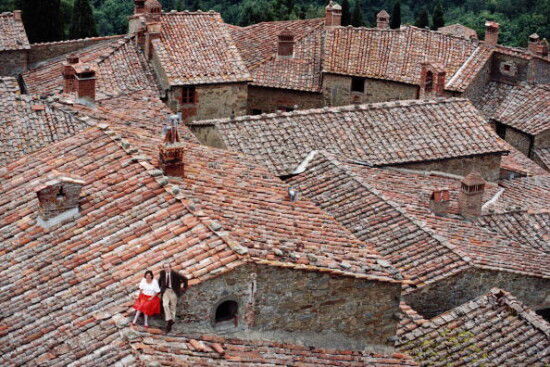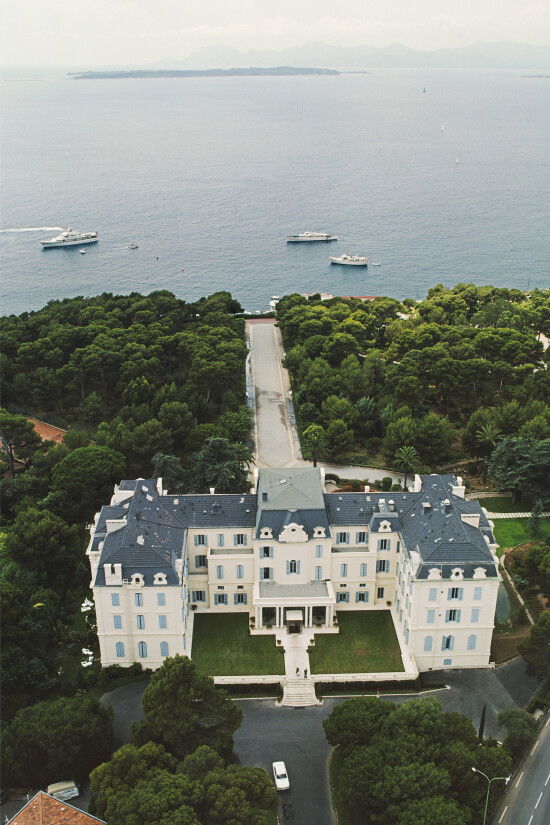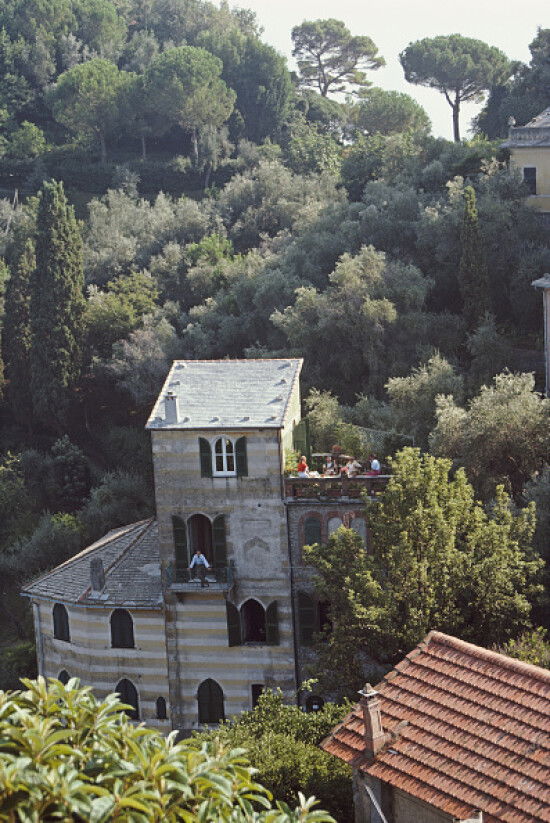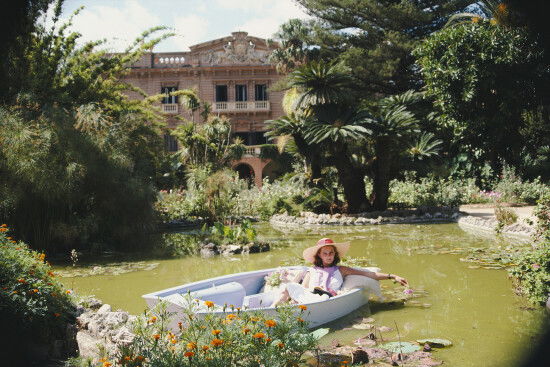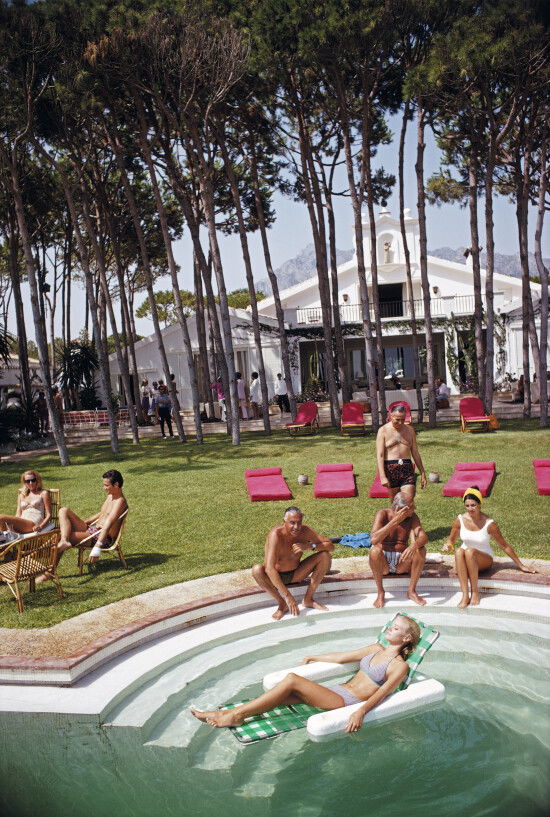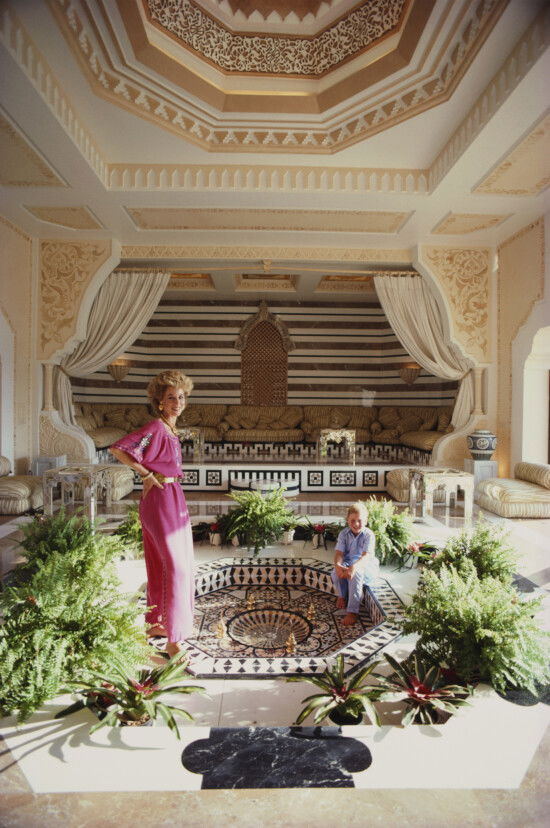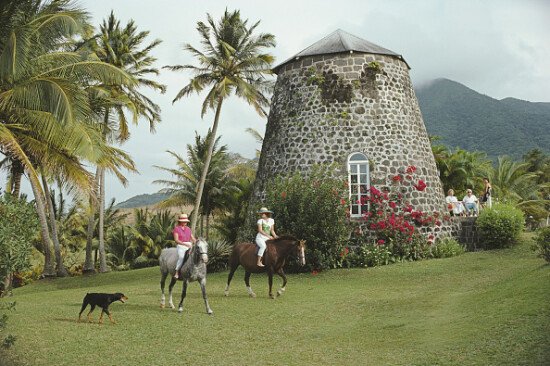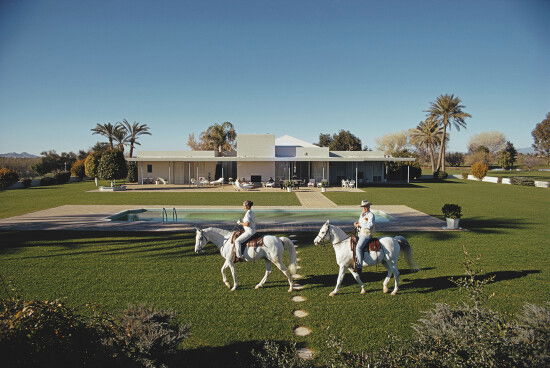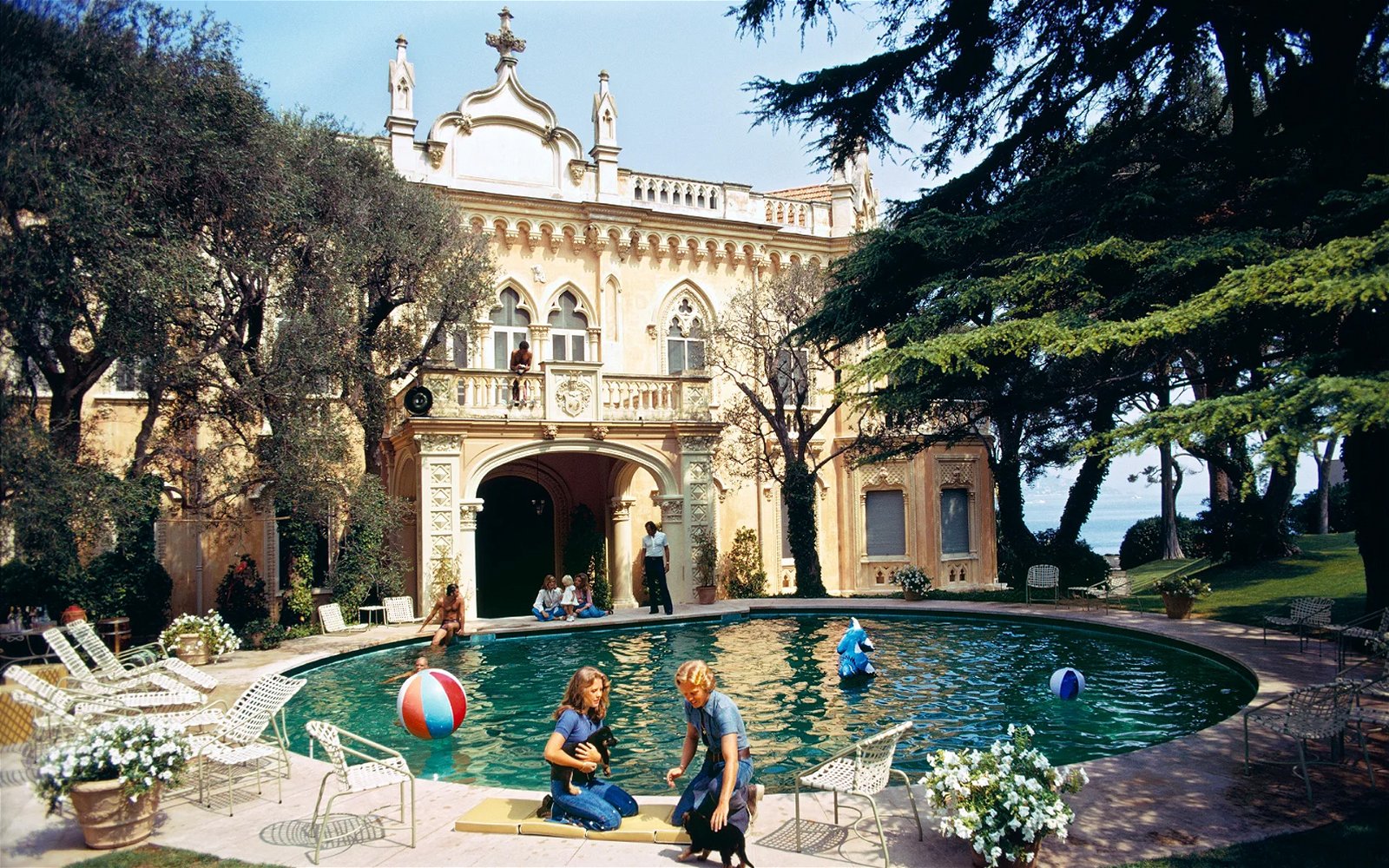
Slim Aarons
Estates
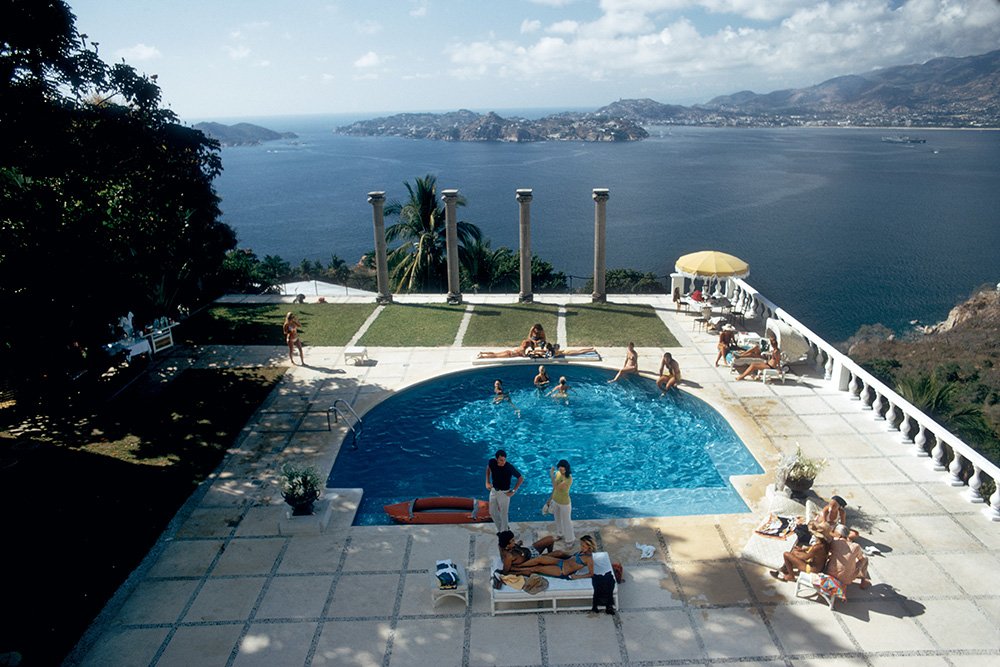
Estates
Slim Aaron’s once wrote; “I believe in fairy tales. For six decades I have concentrated on photographing attractive people who were doing attractive things in attractive places. Many of these elegant people were princes and princesses and others were just ladies and gentlemen. Some lived in marble palaces and Camelot castles, and others lived in magnificent contemporary estates. I traveled all over the world to photograph them; found them in London and New York, Gstaad and Newport, Palm Beach and St. Tropez, and Lake Forest and Rome.”
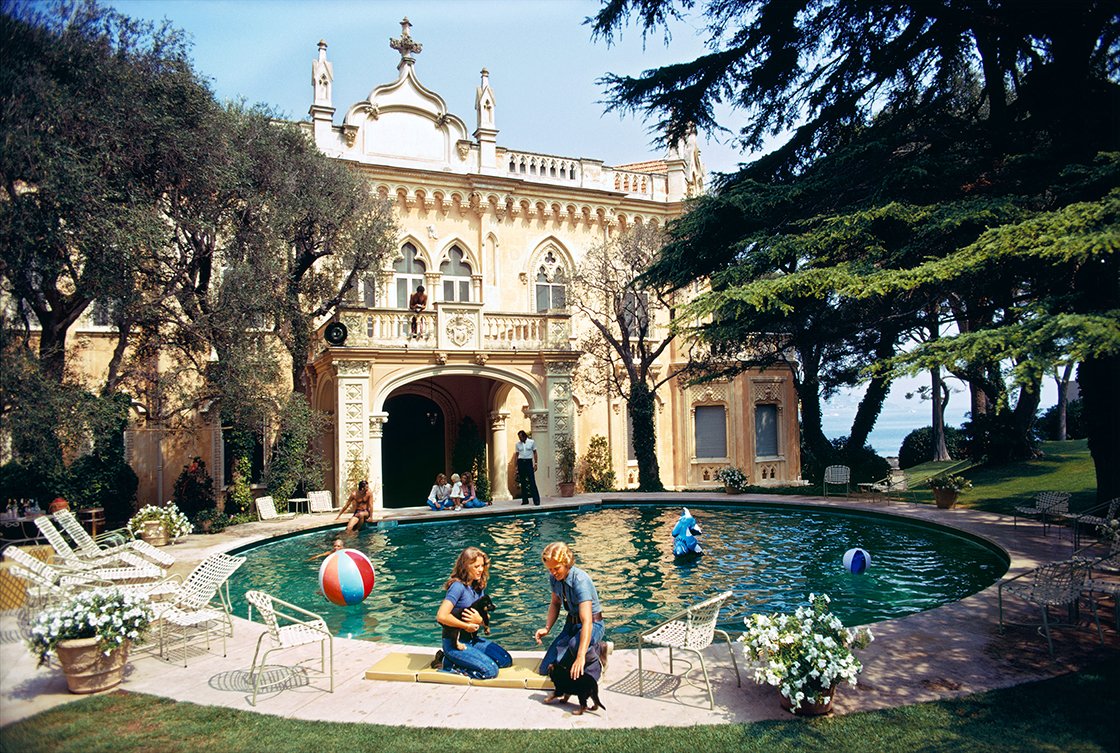
With his charm and his journalistic training, Aarons gained access to the private domains of the wealthy and socially well-connected, slipping into country clubs, onto yachts, and behind the gates of vast villas.
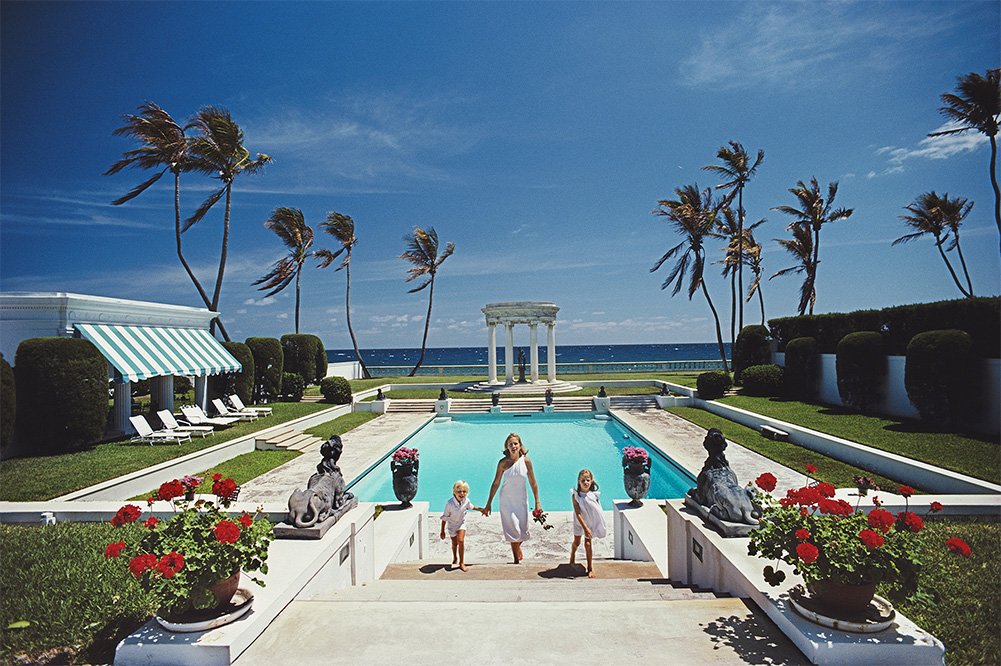
- ESTATES -
Villa Artemis
He shot socialites in front of their dreamy swimming pools and manicured French Gardens. He photographed fashion designers themselves, catching Gianni Versace on Lake Como. Oscar de la Renta in the Dominican Republic, and Nino Cerruti in Capri. Not steeped in the conventions of fashion photography, he brought an outsider's freshness to the job. He disliked artifice. He wasn't interested in the labels inside a jacket or the shape of a dress. He saw style in a broader context, as an expression of a place. A window on a culture, a way of capturing not just a designer's or a model's personal glamour but the spirit of a time, a social zeitgeist.
The fact that Aarons's sparkling photos of C.Z Guest at Villa Artemis remains some of the most iconic influential pictures of their time is not surprising. Aarons’s photographs showed us the private realms of high society and Hollywood, offering glimpses of life where people were less concerned with managing their images, and unapologetic about their fortune and privilege.
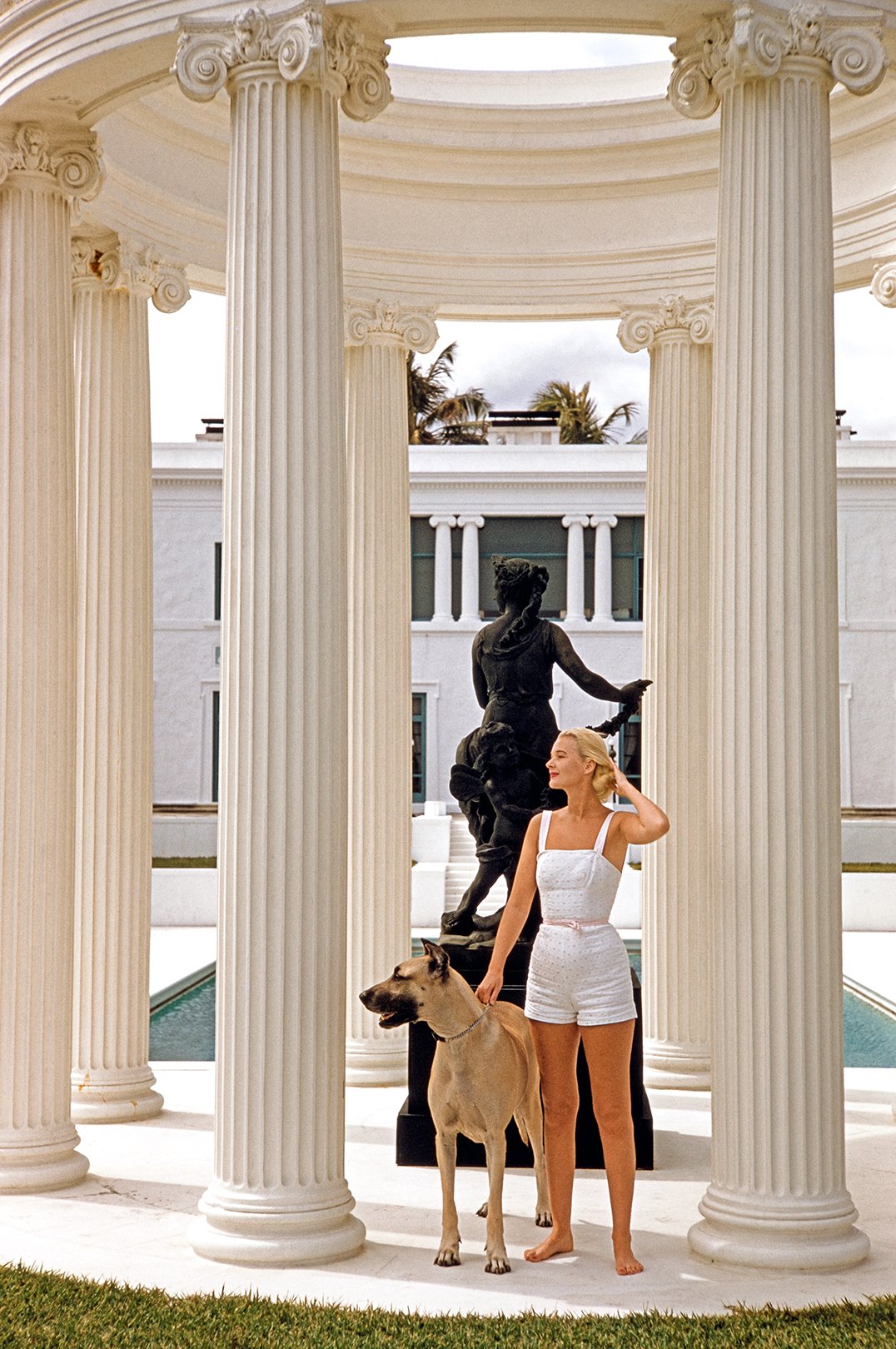
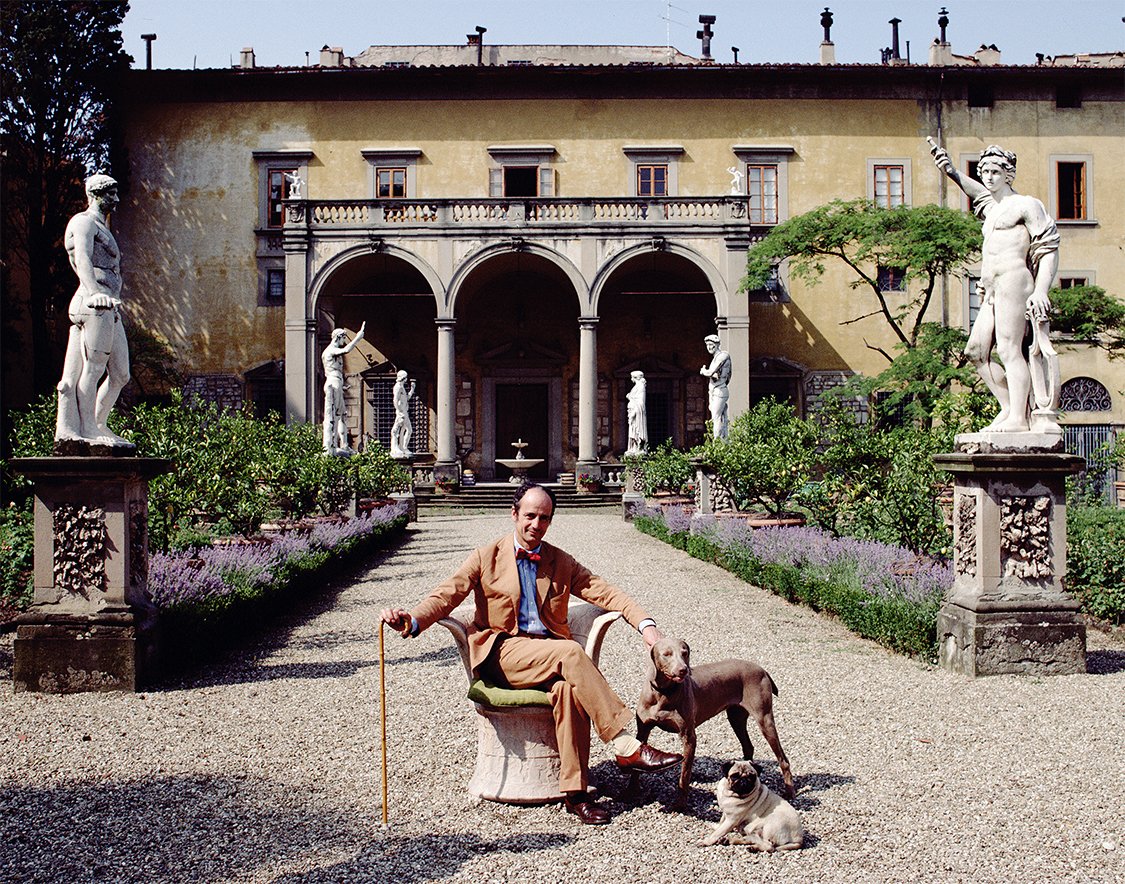
Aarons traveled light, carrying little more than a Leica and a tripod, and in a way, he anticipated the spontaneous moments. Taking hundreds of thousands of images over the course of his career, he found his signature in the environmental shot, pulling back the lens and framing subjects in their settings. Aarons understood that what surrounded his subjects revealed as much about their style as what they were wearing, or how they were standing, or the expression they'd composed for the camera. He looked beyond wardrobes to see what he might discern of his subject's personal style in the accoutrements of their room or the location of their houses. Signifiers were everywhere: the arrangement of a garden or the uniforms of servants.
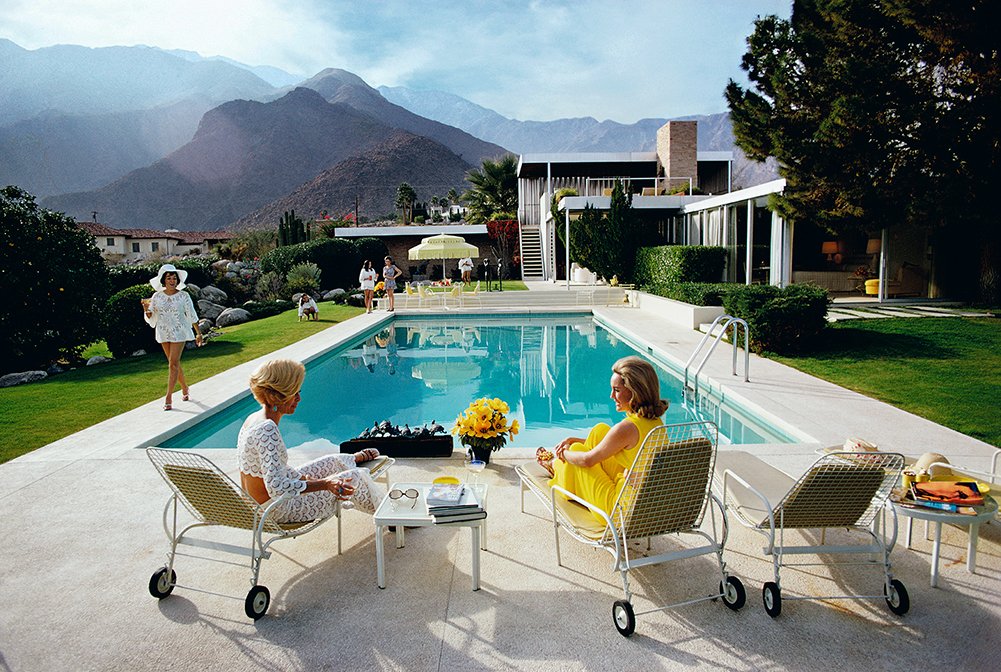
- ESTATES -
Kaufmann Desert House
The photograph of Nelda Linsk and Helen Dzo Dzo at the Kaufmann House became an iconic image of the era, capturing the glamour and sophistication of the Palm Springs lifestyle. Today, and is considered a classic example of mid-century modern style. Today the house has been designated a local landmark and is easily the most famous house in Palm Springs. The architectural style of Desert Modernism is notable for its clean lines, ample use of glass and other natural and manufactured resources, and generous utilization of outdoor spaces.
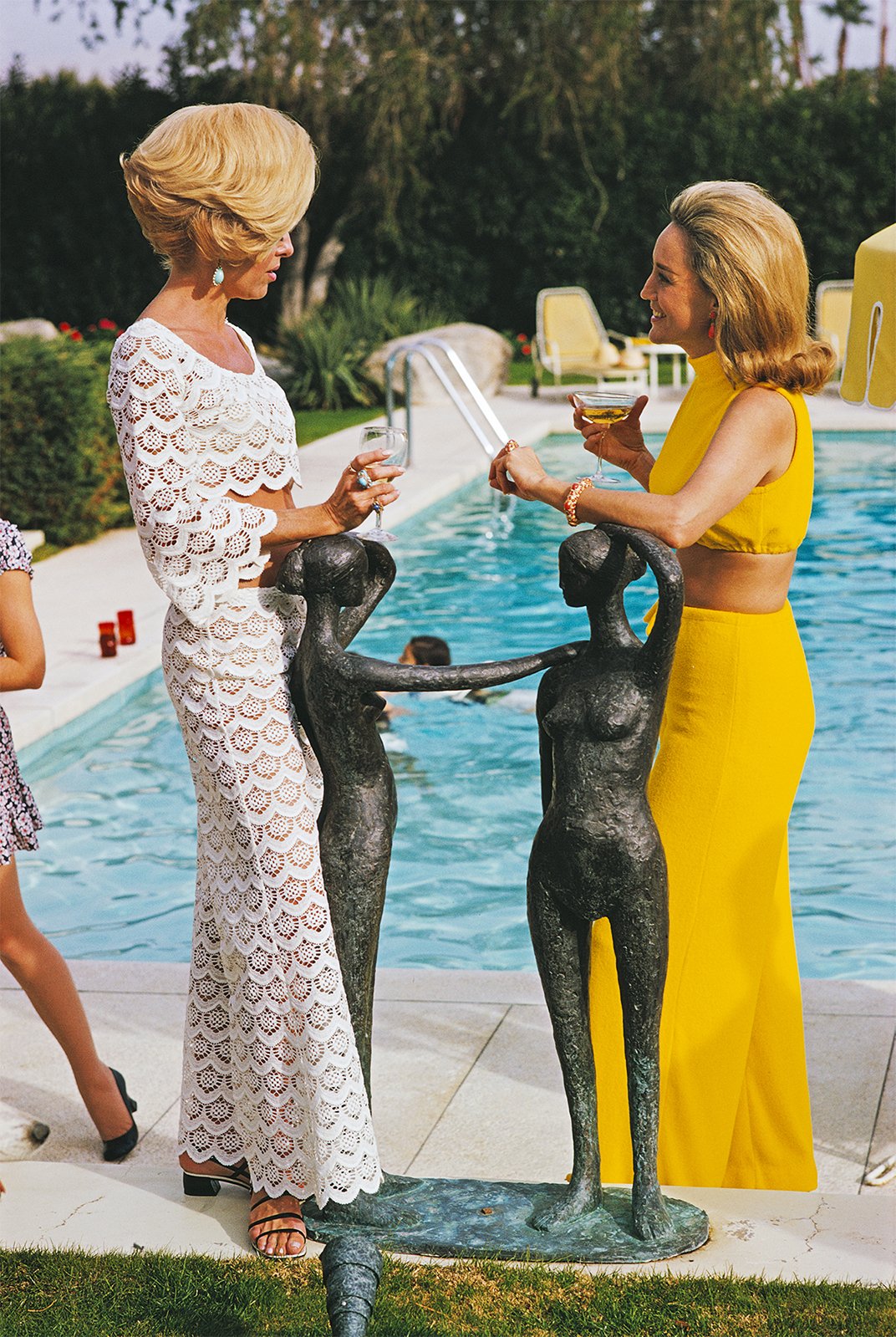
A party at the Kaufmann Desert House, designed by Richard Neutra, Palm Springs, 1970. Many have speculated why the photograph has become one of Slim Aaron´s most iconic images. Was it the big hair and bare midriffs, the mod 1970s outfits, the dramatic view, or its "martini modern" aesthetic?
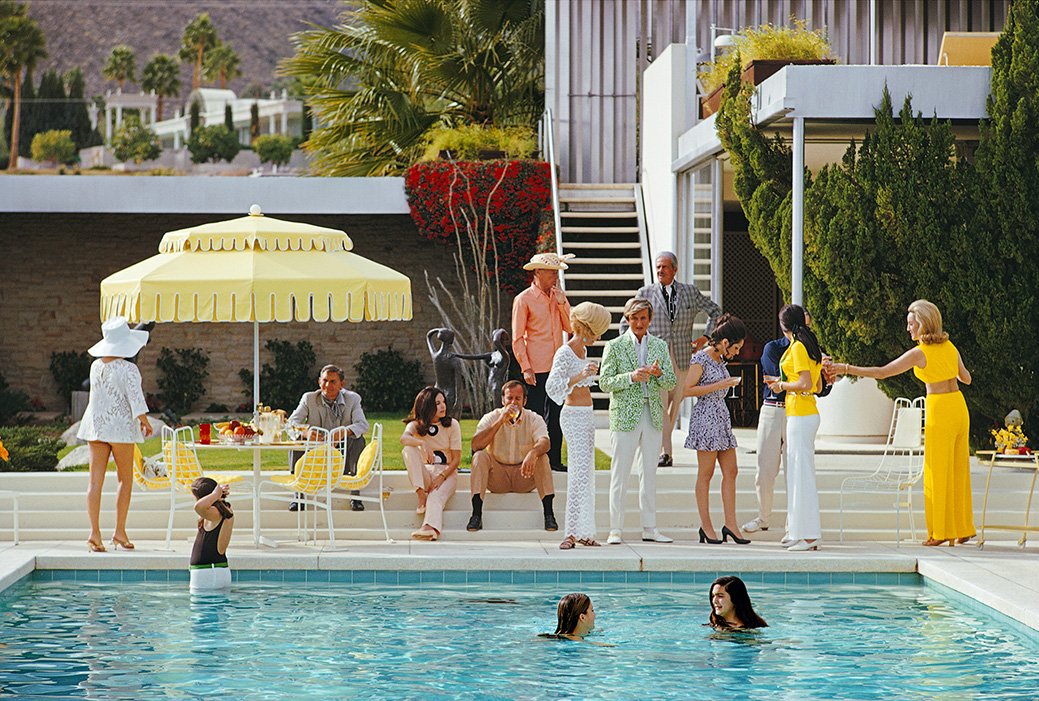
The home's owner then, the Palm Springs socialite Nelda Linsk (in yellow), related years later that Slim had called and said, "I want to come over and do a pool shot. Call some friends over" His directive for what they should wear was simple: Pull something out of your closet." Nelda Linsk was a Palm Springs real estate expert, and her husband, Joseph Linsk, was an art dealer. The couple was part of a social circle that included Hollywood celebrities, artists, and other members of the cultural elite.

